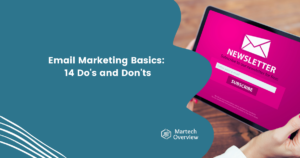Will Chat GPT and its search kill content marketing, or will it take it to the next level? And is there such a thing as GPT SEO?
People have been quick to write off SEO and its capabilities with every major change. But never has this idea been more convincing than with the launch of Chat GPT, not to mention the new search Chrome extension.
One thing is true: ChatGPT Search is a feature that transforms how marketers access and utilize information in real time. And this should be an asset, rather than a career-ending tool.
To understand why SEO is not dead, let’s dive into what ChatGPT Search is, how it works, and how it can revolutionize your content marketing strategy.
Plus, we’ll explore the potential of ChatGPT’s new search Chrome extension for on-the-go research.
What Is ChatGPT Search?
As ChatGPT says it, ChatGPT Search is an integrated tool that enables the AI to access and retrieve live information from the web. Unlike static knowledge models trained on data up to a specific cutoff date, this search functionality empowers ChatGPT to deliver accurate and up-to-date answers.
This means that ChatGPT is no longer limited to its pre-existing knowledge—it can now handle queries about current events, new trends, and niche topics with precision.
For content marketers, this is a goldmine for creating timely, authoritative content that resonates with their audience.
The keyword here is authoritative.
How Does ChatGPT Search Work?
ChatGPT’s search functionality tries to ensure accuracy and reliability by following a few points:
- Goes from training to search feature depending on the query
When a user asks a question that goes beyond ChatGPT’s training data or requires real-time insights, the search feature kicks in automatically. - Fetches relevant information
Using integrated tools, the AI queries the web for information. It scans multiple sources, such as news outlets, industry blogs, academic journals, and authoritative websites. - Summarizes key insights
Rather than delivering a list of links, ChatGPT processes the retrieved information to present a concise, actionable answer. - Provides a way for users to verify the answers
ChatGPT includes citations or references when the search feature is used, so users can verify the information and explore sources further if needed.
What Does ChatGPT Consider To Be Authoritative?
ChatGPT uses authoritative sources. Sounds familiar? Yes, we are now clearly entering SEO territory.
To better understand how the algorithm decides what is authoritative, I simply asked it.
Apparently, the exact criteria for determining which sources to use depend on the underlying search integration and algorithms used. But here are the general principles:
1. Characteristics of Authoritative Sources
- Credibility: Sources with a long-standing reputation for providing accurate and reliable information (e.g., established news outlets, academic institutions, government websites).
- Expertise: Websites or organizations recognized as subject-matter experts (e.g., a health query may prioritize data from the World Health Organization or Mayo Clinic).
- Transparency: Preference is given to sources that provide clear authorship, citations, and a transparent methodology.
- Recency: For time-sensitive topics, sources with the most recent and relevant updates are prioritized.
2. Indicators of Authority
The search tools integrated with ChatGPT typically assess the following indicators when ranking content:
- Domain Quality: Certain domains like .gov, .edu, and .org are often considered more authoritative.
- SEO Metrics: Factors such as backlinks, domain authority, and trustworthiness are considered by the search engine tools.
- Peer Recognition: Content referenced or linked by other trusted sources is often deemed credible.
- Publisher Reputation: Established media organizations or academic journals have more weight than unknown blogs or personal websites.
3. Algorithmic Filtering
The AI uses algorithms to identify and prioritize reliable sources by:
- Cross-Referencing Information: Checking consistency across multiple sources to verify facts.
- Content Relevance: Ensuring the content directly addresses the user’s query.
- Language Quality: Giving preference to sources that are well-written and free of sensationalism or bias.
4. Built-in Safeguards
- Avoidance of Misinformation: Sources flagged for spreading misinformation or low-quality content are deprioritized.
- Trust in Established Databases: The system relies heavily on recognized platforms such as Wikipedia (for quick reference, cross-checked with citations), academic publishers, or industry-specific resources.
5. Limitations
- Dependence on Search Engine Results: The AI relies on the ranking systems of search engines, which may not always perfectly align with true authority.
- Bias in Source Availability: If reputable sources are paywalled or unavailable online, less authoritative sources may surface.
- Lack of Manual Judgment: The AI does not make human-like nuanced judgments about authority but rather follows pre-defined patterns.
6. User and Context-Specific Adjustments
For personalized or niche queries, the system tailors its responses based on:
- Relevance to the Query: Some niche blogs or forums (e.g., Stack Overflow for coding issues) may be considered authoritative in specific contexts.
- Content Purpose: For general knowledge, widely cited and neutral sources are preferred. For technical topics, peer-reviewed research or industry-specific data may take precedence.

How ChatGPT Search Enhances Content Marketing
Content marketing thrives on timeliness, relevance, and credibility. Here’s how ChatGPT Search helps marketers achieve these goals:
- Stay Current with Trends:
With access to real-time information, marketers can identify and leverage emerging trends in their industry. For example, if a new technology or regulation is making waves, ChatGPT can provide up-to-date insights, allowing you to craft timely, engaging blog posts or social media content. - Create Data-Driven Content:
Reliable data and statistics make your content more credible. ChatGPT Search sources information from authoritative websites, helping you back your claims with evidence and improving the trustworthiness of your content. - Boost Research Efficiency:
By summarizing information, ChatGPT saves marketers the time and effort of sifting through multiple web pages. This is particularly useful when preparing content briefs or white papers. - Support Niche Content Creation:
Whether you’re writing for a highly specialized audience or need insights on an obscure topic, ChatGPT Search ensures that you can deliver relevant and accurate content, even in complex industries like SaaS or AI.
Introducing ChatGPT’s Search Chrome Extension
The ChatGPT Search Extension is a browser tool that integrates ChatGPT’s capabilities directly into your browsing experience. It enhances research and productivity by allowing users to access real-time insights, summarize web content, and answer queries without leaving the browser.
This extension is particularly valuable for content creators, researchers, and marketers who need seamless access to information and AI-driven assistance while working online.
This newly launched extension takes this functionality to the next level. It seamlessly integrates into your browser, offering real-time research capabilities without disrupting your workflow.
Key Benefits for Content Marketers
- Quick Access: Search for insights while drafting articles, editing content, or even brainstorming headlines without leaving your writing platform.
- Enhanced Productivity: Combine your browsing experience with ChatGPT’s ability to summarize and contextualize information, saving time on research-heavy tasks.
- Real-Time Fact-Checking: Verify data or claims instantly, ensuring accuracy in your published content.
- Content Curation: Identify trending topics or hot discussions within your niche, using search results to spark new ideas for blogs, emails, or social media campaigns.
Tips for Using ChatGPT Search in Content Marketing
- Leverage Authority: Prioritize information from reputable sources like government websites, academic journals, or industry leaders to maintain credibility.
- Tailor Queries: Be specific in your search prompts to retrieve the most relevant data. For example, instead of asking “What’s new in SaaS?” try “What are the top SaaS industry trends for 2024?”
- Validate Sources: Even though ChatGPT strives for accuracy, cross-check key insights with primary sources to ensure reliability, especially for sensitive or technical content.
- Streamline Content Planning: Use ChatGPT Search during brainstorming sessions to quickly identify high-demand topics or common pain points in your audience.
A Look Ahead: The Future of AI-Powered Search
As tools like ChatGPT Search evolve, they will become indispensable for content marketers who need to adapt to changing algorithms, audience expectations, and industry trends.
That’s not necessarily something new, as Google has been keeping marketers on their toes with constant algorithm updates based on these exact principles.
However, by combining human creativity with AI-driven insights, marketers can focus on what they do best: crafting compelling narratives, delivering value to their audience, and automating their flows.
Whether you’re writing your next blog post, optimizing SEO strategies, or developing a content calendar, the right tools have always made all the difference.
But tools like ChatGPT can also make mistakes. Humans aren’t going anywhere for now.



